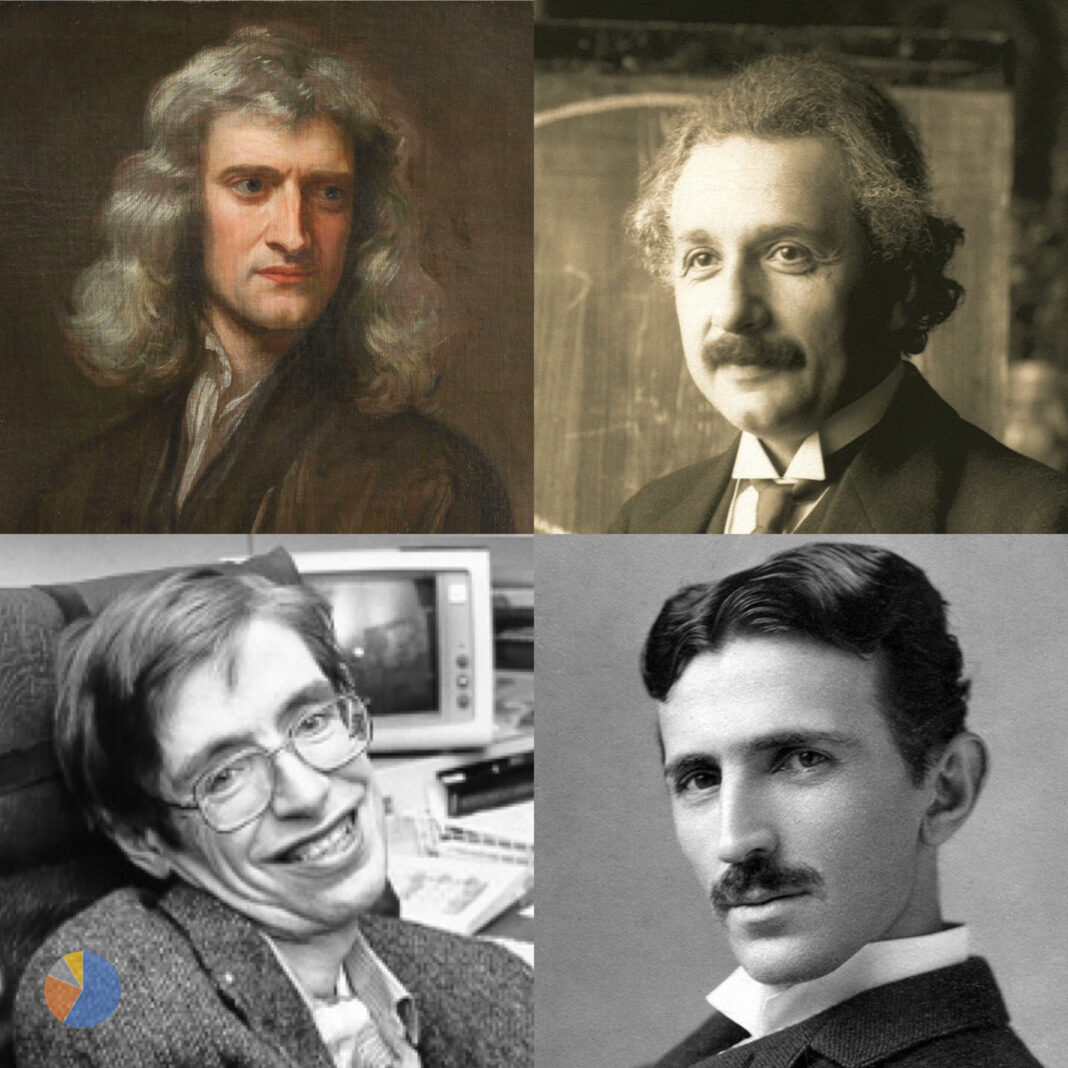Human history is full of remarkable individuals who have shaped the course of civilization with their inventions, discoveries, and ideas. Among them, four stand out as having the largest impact on human history: Isaac Newton, Albert Einstein, Stephen Hawking, and Nikola Tesla. These four scientists revolutionized our understanding of the natural world and the laws that govern it, and contributed to the development of technologies that have transformed our society and culture.
Isaac Newton (1642-1727) was an English physicist and mathematician who is widely regarded as one of the greatest and most influential scientists of all time. He discovered the laws of motion and universal gravitation, which explain how objects move and interact in space and time. He also invented calculus, a branch of mathematics that allows us to study the rates of change of various quantities. He also made seminal contributions to optics, astronomy, and alchemy. His work laid the foundation for classical mechanics, which dominated physics for over two centuries until it was superseded by relativity and quantum mechanics. Newton’s Principia Mathematica (1687) was one of the most important single works in the history of modern science.
Albert Einstein (1879-1955) was a German-born American physicist who developed the theories of special and general relativity, which describe how space and time are affected by gravity and motion. He also discovered the photoelectric effect, which shows that light behaves as both a wave and a particle, and introduced the concept of mass-energy equivalence, expressed by the famous equation E = mc^2. He also made significant contributions to quantum mechanics, cosmology, and statistical physics. He was awarded the Nobel Prize in Physics in 1921 for his explanation of the photoelectric effect. Einstein is generally considered the most influential physicist of the 20th century.
Stephen Hawking (1942-2018) was a British theoretical physicist and cosmologist who worked on black holes, gravitational waves, quantum gravity, and the origin and fate of the universe. He proposed that black holes emit radiation, known as Hawking radiation, and that they eventually evaporate. He also developed the theory of cosmic inflation, which explains how the universe underwent a rapid expansion shortly after the big bang. He also formulated the no-boundary proposal, which suggests that the universe has no beginning or end in time. He wrote several popular books on science, such as A Brief History of Time (1988), which sold more than 10 million copies worldwide. He was also known for his courage and resilience in overcoming a debilitating motor neuron disease that left him paralyzed and unable to speak.
Nikola Tesla (1856-1943) was a Serbian-American inventor and engineer who pioneered the use of alternating current (AC) electricity, which is more efficient and safer than direct current (DC) electricity. He invented the AC induction motor, which is widely used in industrial applications. He also developed the Tesla coil, an induction coil that produces high-voltage sparks and is used in radio technology. He also experimented with wireless power transmission, X-rays, radio waves, remote control, robotics, lasers, and artificial lighting. He envisioned a global system of wireless communication and energy transfer, which he called the World Wireless System. He was also a visionary who foresaw many modern technologies such as smartphones, satellites, radar, television, and solar power.
Conclusion:
Assessing who had the largest impact on human history among these brilliant minds is a challenging task. Each of them has left an enduring legacy that has shaped our world in unique ways. Isaac Newton’s laws of motion underpin much of classical physics and engineering, while Albert Einstein’s theories have reshaped our understanding of the universe. Stephen Hawking’s insights into black holes and cosmology continue to captivate and inform scientists and the public alike. And Nikola Tesla’s inventions have left an indelible mark on the modern technological landscape.
In conclusion, the four scientists discussed in this essay have each had a significant impact on human history through their contributions to our knowledge of the universe and advancements in technology. The legacies of these extraordinary individuals are evident in their discoveries, inventions, and ideas, which continue to inspire and challenge us today. While it is difficult to determine who had the largest impact, as each scientist’s contributions were unique and groundbreaking, we can acknowledge their collective influence in shaping our understanding of the world and the technologies we rely on today. These brilliant minds are among the greatest that humanity has ever produced, leaving an indelible mark on our civilization.
A global media for the latest news, entertainment, music fashion, and more.





